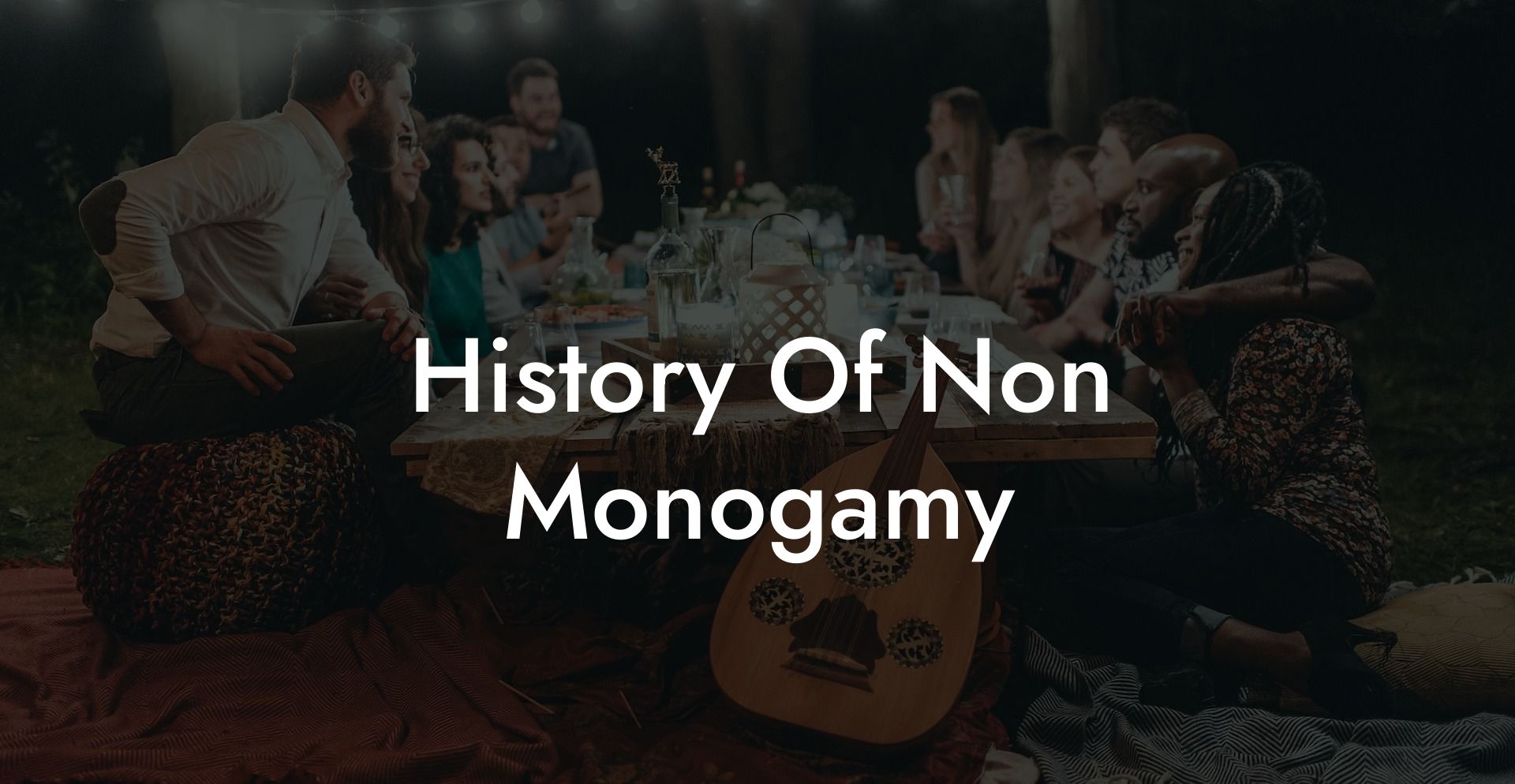Throughout human history, the concept of monogamy - one person committing to another person for life - has been the dominant relationship structure. However, non-monogamy, which includes polyamory and open relationships, has also had a place in our past. In this article, we will dive into the fascinating history of non-monogamy and learn how it has influenced and evolved over time, shedding light on the variety of relationship structures humans have practiced.
History Of Non Monogamy Table of Contents
Ancient Civilizations and Non-Monogamy
Ancient Civilizations and Non-Monogamy
In ancient civilizations, we find numerous examples of non-monogamous practices:
-
Mesopotamia
The earliest known civilization in history, Mesopotamia, practiced polygamy - a type of non-monogamy where one person, typically a man, is married to multiple spouses. This practice was primarily limited to the upper class, and it was largely a way to create alliances and strengthen political power.
-
Ancient Egyptians
Although monogamy was the most common relationship structure, polygamy was also practiced in Ancient Egypt, particularly in royal families or among the wealthy. Like the Mesopotamians, multiple marriages were often political in nature, ensuring strong alliances.
-
Ancient Greece
In Ancient Greece, non-monogamous practices such as polyamory and open marriages existed alongside monogamy. The Greeks placed a strong emphasis on love and passion, and their views on relationships were quite progressive for their time.
Non-monogamy in Religions
Some religious texts and practices encouraged or accepted non-monogamous relationships:
-
Polygamy in the Hebrew Bible
The Hebrew Bible contains multiple references to polygamous relationships among patriarchs and other prominent figures, such as Abraham, Jacob, and David. Despite this, polygamy was not the norm in ancient Israelite society, and monogamy was the more common relationship structure.
-
Islam and Polygyny
Islam allows a man to marry up to four wives. However, this practice comes with certain conditions, such as ensuring that all wives are treated equitably. While polygyny, a form of polygamy, is allowed in Islam, it is generally not encouraged and instead seen as an exception.
The influence of Christianity and Western Society
As Christianity and Western culture became dominant worldwide, they influenced beliefs and practices around relationships, with monogamy becoming the accepted norm.
-
Christianity
Christianity promotes the idea of a single partner for life. Some early Christians practiced polygamous relationships, but this practice was eliminated over time as the religion became more institutionalized.
-
Monogamy in Western Society
The influence of Christianity, along with laws and social norms, led to the predominance of monogamous relationships in Western societies. This development further solidified the idea that monogamy was the "natural" and "normal" relationship structure.
Modern Non-Monogamy and its Resurgence
In the last few decades, we have seen a resurgence of interest in non-monogamous relationships. This shift has been attributed to changes in social attitudes, increased awareness and understanding, and the open sharing of experiences thanks to the internet and social media.
History Of Non Monogamy Example:
For example, let's look back to the 1960s and 1970s, when the Free Love movement and second-wave feminism brought about a re-evaluation of traditional relationship norms, influencing many to explore non-monogamous relationships. Today, websites, apps, and online communities have made it easier for people to connect and share information about non-monogamous lifestyles, normalizing them and facilitating a continued rise in interest.
Just as the history of non-monogamy goes back thousands of years, its modern resurgence serves as a reminder that there is no one-size-fits-all approach to relationships. With a broader understanding of the past, we can embrace and respect the diverse relationship structures that exist today. If you enjoyed this article, please share it and explore other guides here on The Monogamy Experiment to learn more about non-monogamy, monogamy, and polyamory.













